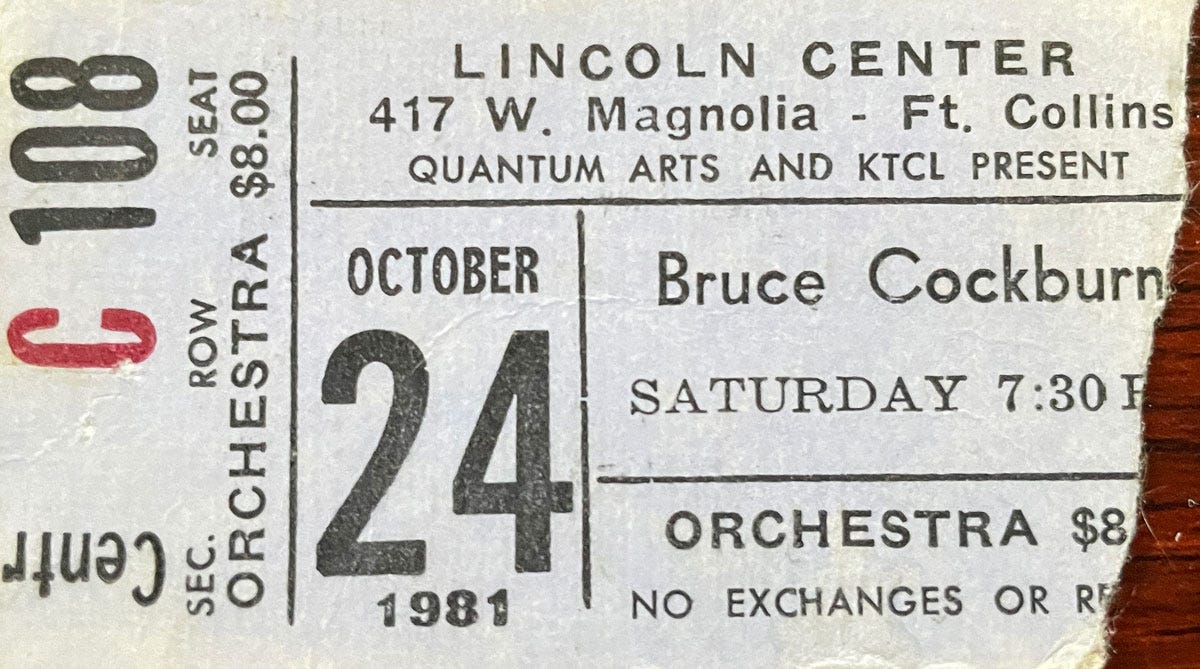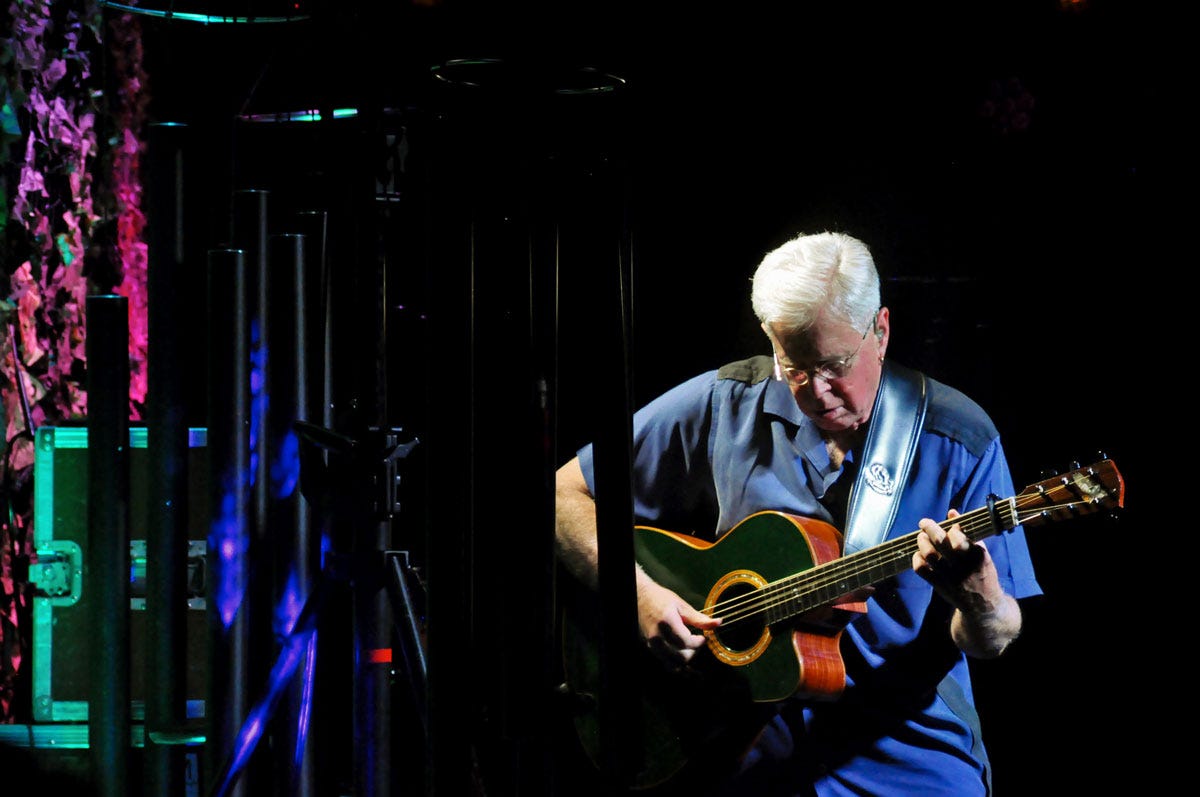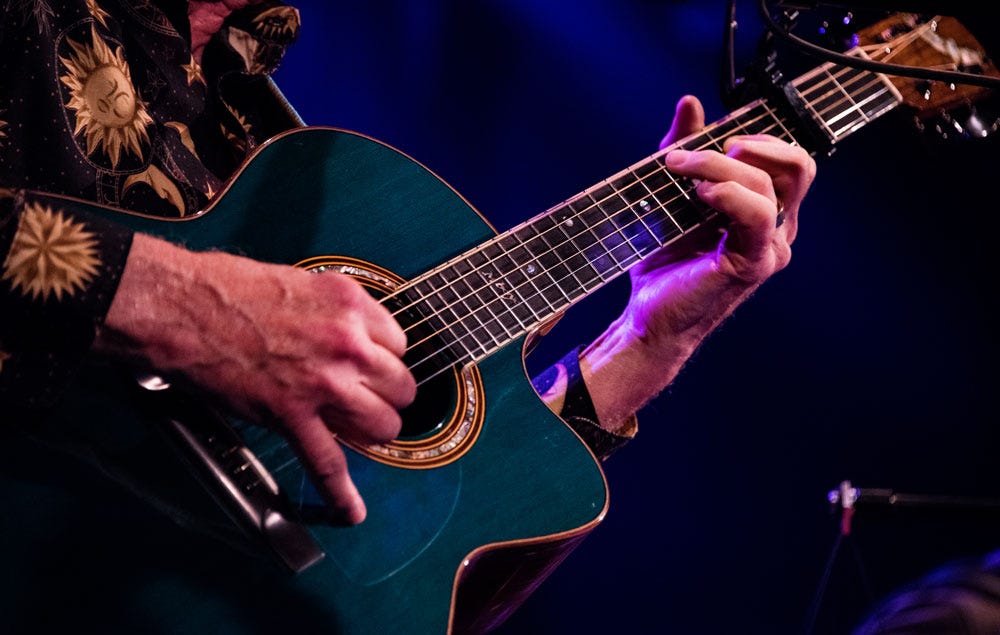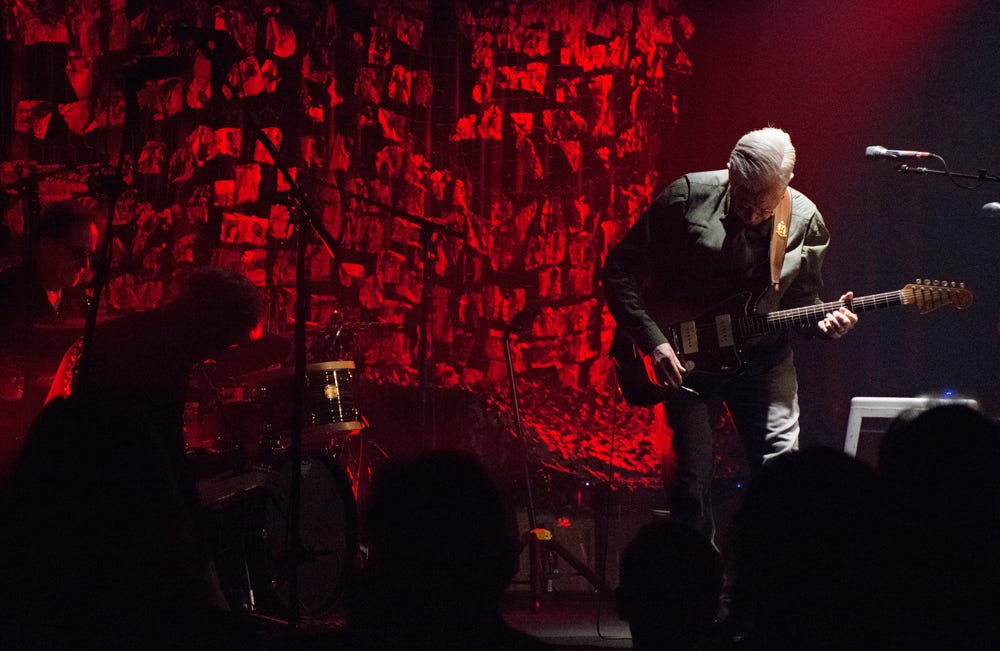"The thumb drone or an alternating bass. You sort of have one or the other and Mississippi John Hurt was a great source of direction, I guess would be the way to put it, because of the beautiful and simple way he used to put the melody over the alternating bass. I mean he just played the melody of the song, and that was like nobody else I had heard, it wasn't just licks, it was the actual melody. That sort of opened up a whole new thing and because of my interest in Jazz and other types of music that all got added in so when you take that same sort of right-hand technique and apply it to a more complex musical approach you end up with something like what I do." - Bruce Cockburn
I remember the moment well. Like it was yesterday. A moment unfaded by time or memory. A connection between artist, audience, and a new fan.
Bruce Cockburn has been making music since 1970 when he released his eponymously titled first album. Not until several years later, when his 11th album, Humans, was released was I to discover this Canadian’s extraordinary work and make that wonderful connection.
Often called Canada’s best kept musical secret, Cockburn has received numerous awards over a 50+ year career. Throughout the 1970s much of his music was guided by a Christian faith that informed his writing during those early years. He’s never been preachy or overbearing, never a proselytizer. Indeed, I remember one performance I attended where he savaged certain TV preachers blaming the 9/11 attacks on gays and women who’d had abortions saying, “I’m a Christian, but not one of those Christians.”
Listen to the audio for “All the Diamonds in the World” from Bruce’s 1977 live album, Circles in the Stream.
Over the 1980s and 90s his discography included a fair number of classic albums: Inner City Front (1981), The Trouble with Normal (1983), Stealing Fire (1984), Dart to the Heart (1994), and The Charity of Night (1996). Additionally, Cockburn had begun playing more electric guitar and the melodies and lyrics reflected that; more energy, more electricity, more tension. And with songs like “If I Had a Rocket Launcher” and “Lovers in a Dangerous Time,” less Christianity.
“Inner City Front was really the big one. There's electric guitar on many of the earlier albums, but it didn't start to take over until I was playing with heavier bands with more drums and more emphasis on rhythm, and then it was an irresistible pressure to pick up the electric guitar - to hear myself on stage for one thing - but also to keep up in intensity with the other guys. There was a big learning process in there. On Inner City Front I got away with it, but there's a lot of learning in front of people going on. I was applying the same techniques to the electric as I used on the acoustic, but there's a big difference in touch and it took some time to kind of get the feel for it.” (Bruce Cockburn Interview, Guitarist Magazine, November 1999, by Steve Lawson.)
So, during this period of transition I attended my first Bruce Cockburn concert: October 24, 1981, at the Lincoln Center in Ft. Collins, Colorado, where I connected with the artist in a way that I never had previously, or since.
Right around Halloween was traditionally when we’d get our first snowfall in Northern Colorado and, as our group of about a dozen BC fans gathered for a pre-show potluck, the snowflakes began silently drifting down. Good vibes, good food, good cocktails (and perhaps a smokable Hawaiian treat) set the tone for the evening.
We arrived at the Lincoln Center shortly before the 7:30 showtime and took our seats, 2nd row dead center. Bruce and his 5-piece band opened with “You Pay Your Money and You Take Your Chance” from the new album which was followed by several new rockers (the second tune, “The Trouble With Normal” hadn’t been released yet). Midway through the set, during “Creation Dream,” the power failed, killing the instruments’ amplification and leaving only one emergency light shining from the back of the hall. Without missing a beat, the band fell into an impromptu, unplugged jam through the 20-minute outage, flawlessly closing out the song once the power snapped back on. To this day, I’ve never witnessed a more spontaneous and expert live musical moment.
As if that sublime musical experience wasn’t enough, though, the “moment’ was still to come.
My favorite song on the new album was/is a slow burner titled “Loner.” Beginning with a gorgeous open chord progression on Bruce’s lone acoustic guitar, the band slowly falls in, building to Hugh Marsh’s incredible violin solo that concludes the 7+ minute song. As the concert wound down, Bruce switched out his electric for an acoustic guitar, walked to the front of the stage, and strummed the distinctive opening chords to “Loner.” Involuntarily, I let out a contented sigh that was evidently heard throughout the otherwise silent auditorium, prompting a few scattered giggles and, most importantly, a knowing grin from Bruce himself.
Listen to the audio for “Loner” from Bruce’s 1981 performance in Denver, Colorado.
That moment 43 years ago is deeply and forever engrained in my mind’s eye and ear. As I reflect on Acker’s quote, musician, audience, and I “were as close to magic, God, and perfection as anyone could ever be.”
That crystal moment.
Since that first Cockburn concert I’ve seen him perform a couple dozen times, watching and hearing his evolution as a singer-songwriter and human being. I last saw him perform in 2019. The Bruce Cockburn of today has seemingly distilled all those contrasts into a coherent whole, his concerts now containing elements from throughout his career; the joyous and angry, the jazz aficionado and folk troubadour, the Christian and secularist. And for his fans, memories embedded in song; songs embedded in memory and all those connections that bind and make us human.
Bruce Cockburn’s music is available through his website.
All photos copyright Mark Caicedo/PuraVida Photography













Beautiful photos (of course) and great write up on Cockburn. My favorite track of his is "Last Night of the World" from "Breakfast in New Orleans." I saw him on that tour and it has stuck with me. I love also love the idea of a "Moments" series and am looking forward to future installments.